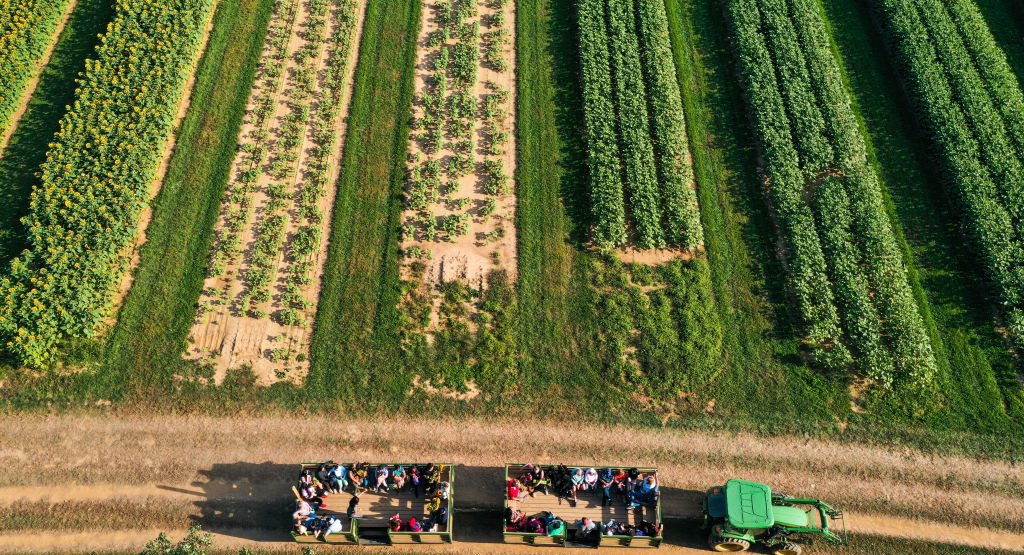A nonprofit representing New Jersey farmworkers is suing the state over allegations that laborers are being denied the same equal pay protections as other workers in the Garden State.
The complaint was filed this month in Mercer County Superior Court by the Seton Hall Law School Center for Social Justice, the American Civil Liberties Union of New Jersey and the ACLU Immigrants’ Rights Project on behalf of El Comité de Apoyo a los Trabajadores Agrícolas (CATA), which translates to the Committee to Support Agricultural Workers. New Jersey’s Attorney General Matthew Platkin as well as the state’s labor commissioner and agricultural secretary are named as defendants in the lawsuit.
The suit raises claims that farmworkers’ right to safety under the New Jersey constitution is being violated because their lower wages and lack of overtime protections “burdens their health and safety,” and the “discriminatory treatment of farmworkers is flatly inconsistent” with the constitution’s expressed purpose to “safeguard workers’ health, efficiency, and general well-being.” The organizations also allege that the pay discrepancies that farmworkers are facing violate the New Jersey Civil Rights Act.
A spokesperson for Platkin declined to comment on the litigation.
In 2019, Gov. Phil Murphy signed a bill raising the state’s minimum wage by at least $1 a year until it reaches at least $15 an hour. The minimum hourly wage for most workers in New Jersey is currently $15.13, but a carveout in the law excludes farmworkers from the same pace of wage increases. According to CATA, farmworkers are now paid a minimum wage of $12.81 an hour.
New Jersey’s more than 9,900 farms cover 750,000 acres. They’re especially known for their blueberries, peppers and cranberries, and rank among the nation’s top growers of those products. New Jersey relies on about 25,000 farmworkers, many of whom are undocumented immigrants, seasonal workers from other states, or migrants on special work visas from Mexico or Central America.
Molly Linhorst of the ACLU of NJ said that under the current rules, farmworkers won’t reach the $15 minimum wage until 2027 and won’t reach “pay parity” with other workers in the state until 2030. Farmworkers also do not receive the same guarantee of overtime pay as other workers, she said.
“We want it to be known these exclusions exist,” said CATA’s General Coordinator Jessica Culley. “I think a lot of people do not actually understand that farm workers are legally paid less than other workers right now per hour and that they can work 70 hours a week and they don’t earn overtime.”
Linhorst said that if the lawsuit is successful, the court would issue an order striking the farmworker exclusions from the law. Then the attorney general and labor and agriculture officials would be charged with carrying out enforcement to ensure that farmworkers receive the same wages as other workers.
“Farmworkers would fall under this broader umbrella of all workers in the state,” said Linhorst.
She added that the state Legislature could fix the lack of wage parity but the bill signed in 2019 showed that lawmakers “don’t seem to have the appetite to do it and instead are swayed by the farm industry.”
“So this is a different avenue in which to try to achieve this change,” she said.
New Jersey isn’t the only state contending with farmworker pay issues.
Farmworkers in New York are progressing toward similar benefits enjoyed by other employment sectors. At the start of this year, the state began gradually lowering the threshold for earning overtime, until it reaches 40 hours a week by 2032. Under the new law, New York farms can apply for a tax credit to offset the additional cost of paying workers overtime.
This summer, farmworkers in the Garden State are working under increased heat with no adjustments to their schedules and without additional overtime pay, which “feels like a slap in the face for a lot of workers,” said Culley with CATA.
“With how much work they put in to harvest food — food is essential,” she said. “We need food to survive in our communities and in our society, and their work that they do should be appreciated [and] valued.”
